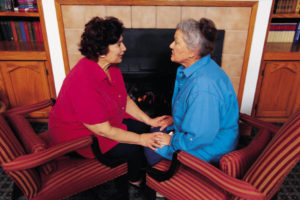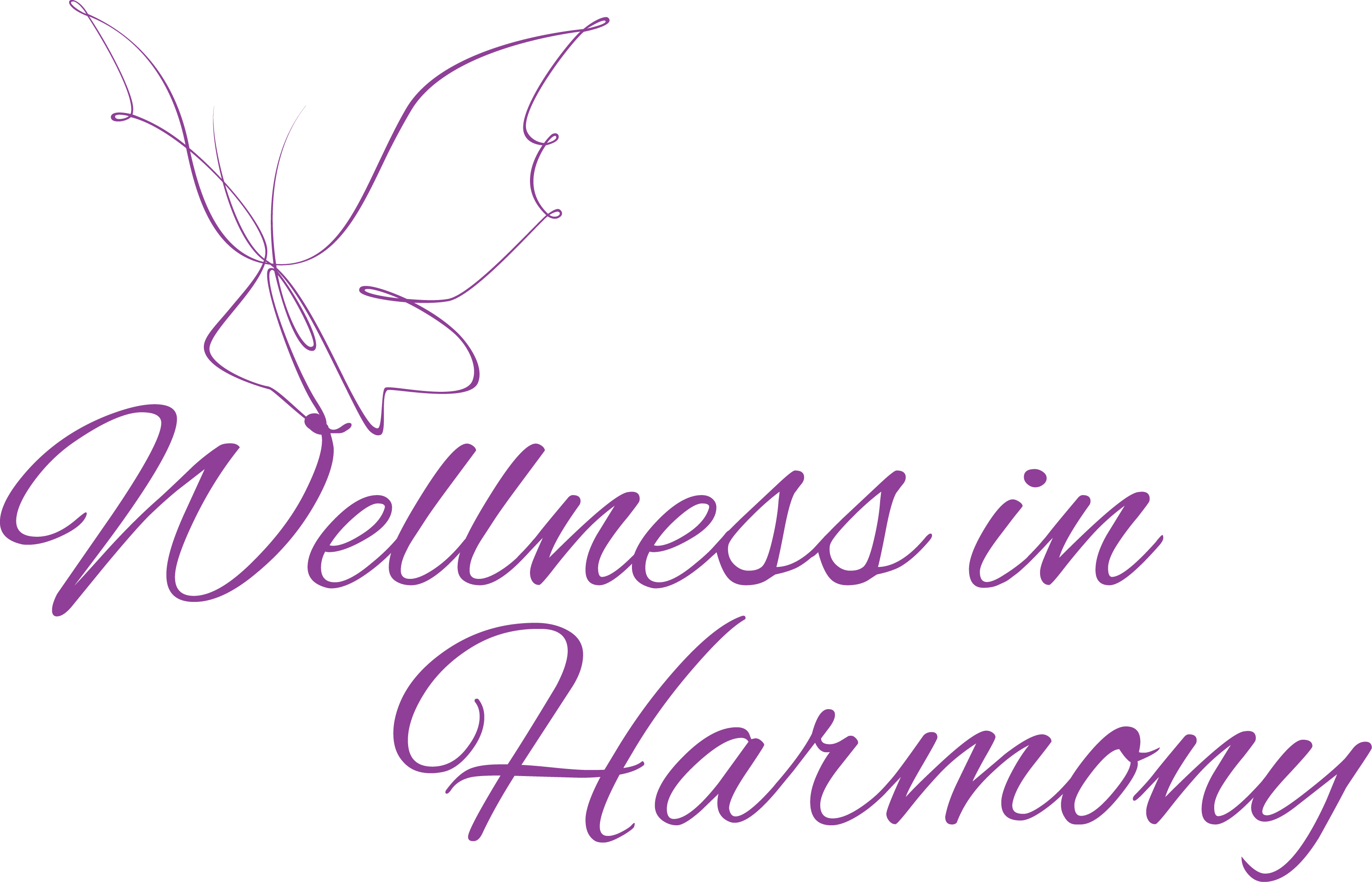Understanding and Navigating Through the Upheaval
By Linda Dieffenbach, BSW, RMT
Despite witnessing the intensity of stress and frustration building across the country as this year election season unfolded, I failed to fully grasp the level and depth of collective pain and trauma that is the underlying source of all of the strife. It is not about which side of the political system you support. What has come to light through this is a profound level of anger, grief, trauma and pain that is being carried by most Americans. It runs deeper than politics, and all of us are feeling it on different levels.

Personally, I was not prepared for the deep traumatic response that was triggered following the election. There was a depth of fear that gripped me and rocked me to my core. It took some time for me to process what I was experiencing before I could truly make sense of it. After tending to my needs, I began to understand more fully what was transpiring within and around me and why.
What is Happening?
As a nation, we are unconsciously acting out our collective wounding on a personal and community level – and through these actions, we are creating even more pain and suffering for ourselves and others.
What we are witnessing and experiencing stems from so many factors~ a vast and ever growing economic divide, a long and painful history of oppression, racism, abuse and mistreatment of minorities and women; extreme disillusionment in a political system more focused on political gain and corporate agendas than the needs of the people; terrorism, the list goes on. And each of us are feeling it on some level.
For many of us, we are not only being triggered by the collective trauma but are also carrying our own personal trauma that is being reflected back at us on a national stage, which is causing even more complex triggers and reactions.
While I will not get into a dissertation about trauma and how it affects you, I do want to talk about how to recognize some basic trauma responses and how to support yourself and your children, friends, loved ones and community through this. Self-care is key.
Common Trauma Responses:

Physically, you may experience:
- headaches, backaches and other pain
- digestive issues
- sleep changes, fatigue, insomnia, nightmares
- sudden sweating
- heart palpitations
- difficulty concentrating
Emotionally, you may experience:
- fear and anxiety
- anger, lashing out and irritability
- hyper-vigilance
- worrying or ruminating
- shock and disbelief
- flashbacks of previous traumatic events
- panic attacks
Behaviorally, you might experience:
- minimizing the experience
- detachment and or avoidance
- isolation
- increased use of alcohol or drugs
- aggression and lashing out
Coping strategies:

Recognition:
This first thing is to recognize that you or your loved one have been through something distressing and are having a trauma response. Understand that this is not a conscious choice but a deep psychological, energetic and physiological reaction to a traumatic experience or traumatic trigger.
Compassion:
Be gentle and compassionate with yourself and those around you. Experiencing a trauma response is very painful and overwhelming. Imagine it as if the person has just gone through a tragic loss, experienced an assault, or survived an accident. They are reacting in pain, fear, grief and/or anger. This is a normal response to trauma and it will pass with time, self-care and healing. With yourself, your loved ones and your community, hold them with compassion, kindness and patience.
Safety:
Create a safe physical and emotional space for yourself and/or your loved ones to process your emotions. Avoid alcohol and drugs during this time. Do not tell yourself or your loved one to ‘get over it’ or ‘move on’. Allow space and time to process and heal the experience. Also, avoid making any major life decisions during this time.
Support:
Reach out to trusted and supportive friends who will listen. Seek a skilled counselor or healer to support you and guide you through. Find a support group. Temporarily disengage from triggering situations and people who are not capable of offering the support you need at this time (i.e. do not binge watch the news or get caught up in triggering social media battles).
Validation and Understanding:
Recognize that what you and your loved ones are experiencing is real and the reaction is a natural response to trauma. The impact of trauma is complex and diverse. Validate your/their experience and emotions with compassion and understanding. Healing will take time, but with the right support and self-care, it will come. There are a number of great resources that can help you better understand trauma which I recommend taking a look at. This site is a good starting point.
Self Care:
Self care is extremely important – at all times, but especially when coping with a traumatic event or trauma response.
- Take time to get adequate rest – avoid over taxing yourself physically, mentally and emotionally
- Exercise regularly, and be sure to incorporate exercise that integrates the body and mind such as yoga, Tai Chi and Qigong
- Practice relaxation breathing exercises
- Take breaks when you need them
- Learn tools to ground your energy and reduce anxiety and other symptoms
- Get regular body and energy work to help your body release the trauma. Reiki, massage and acupressure are wonderful tools for healing on all levels
- Learn how to create and maintain healthy boundaries
- Spend time having fun, being with friends and loved ones, doing things you enjoy, and creating laughter in your day
- Get out in nature and allow your body and spirit to be nourished by the earth
- Keep a gratitude journal
- Eat healthy foods that will strengthen you and minimize those that will deplete you of energy
- Meditate
- Listen to music
- Seek spiritual support
- Decrease time on social media and other apps that can be triggering or overwhelming
- Find a skilled therapist, counselor or healer trained to support those who are healing from trauma
- If you are sad or anxious, swaddle yourself with a blanket and hug a pillow or stuffed animal to your chest
- Explore creative outlets through arts and crafts, music, movement, or other mediums
- Write a love letter to your current, younger or future self
Personal and Collective Trauma: How to Help
As best you can, be mindful that nearly everyone is coping with trauma on some level and you never truly know what another person is going through. As you meet people in your community or through social media and they are in a state of anger and reactivity, have some compassion for them. Naturally, be discerning and keep yourself safe, but instead of reacting with judgement and fear, recognize that each one of us is carrying our own pain in different ways. If they trigger you, allow that to be an indicator of places within you that need healing too.
Recognize that you, too, carry your own fear and pain and can be just as easily overcome by it and behave in ways that are unkind or unhealthy at times. If we can treat ourselves, our loved ones and our community with greater compassion and understanding, we create space for healing to occur.
Getting Support
If you are in need of support, please reach out and contact me. I am happy to help support you in whatever way I can, either through my own services or by connecting you with people and resources that meet your needs. The initial impact of the whole election process has been very overwhelming on many levels and the underlying trauma is old and deep and will take time to heal. Be gentle with yourself and those around you, and give yourself the care and nurturing you need.
About Linda Dieffenbach:
Linda has over 15 years experience as an energy healer, coach and personal development expert. She specializes in empowering you to overcome the patterns and habits that are keeping you feeling stuck and overwhelmed with your life. Her areas of training and expertise include personal empowerment, self-care skills, stress management, healthy relationships, effective communication, suicide prevention, and trauma. To learn more about Linda, click here. Interested in working with Linda? Click here.
